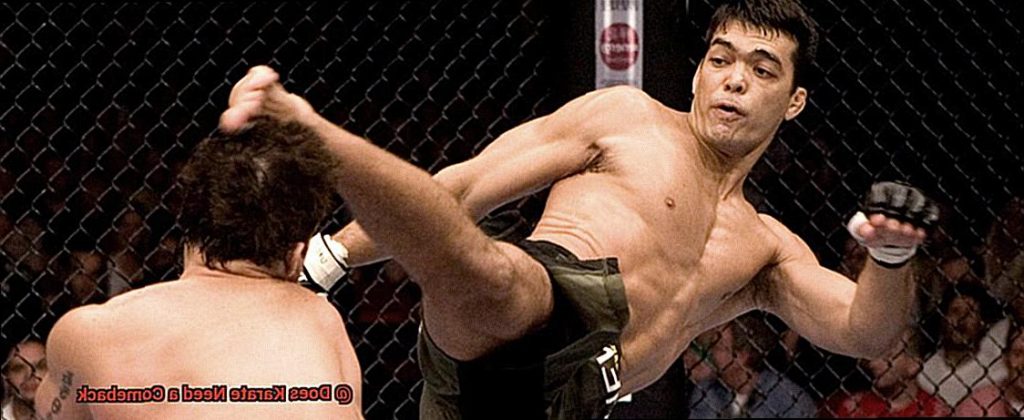Karate is more than just a martial art – it’s a cultural phenomenon that has captured the hearts and minds of people around the world.
With its origins in Japan dating back to the early 20th century, karate quickly gained popularity for its focus on discipline, respect, and self-defense techniques. However, over time, the sport began to lose its luster, overshadowed by other martial arts such as Brazilian Jiu-Jitsu and Mixed Martial Arts.
But now, with a renewed interest in traditional martial arts, many are asking: does karate need a comeback? The answer is not so simple.
While some argue that karate’s emphasis on tradition may not appeal to modern audiences, others believe that its long-standing history and emphasis on self-discipline is precisely what makes it relevant today. In fact, several karate schools have seen a significant increase in attendance recently.
And with the sport being included in the upcoming Olympics, there’s no doubt that karate will be thrust into the public eye once again. Karate offers countless benefits for practitioners – from physical fitness to mental clarity and stress relief.
It’s an art form that requires dedication and hard work but can lead to profound personal growth. So what’s the verdict?
Does karate need a comeback? Ultimately, it depends on who you ask.
Whether you’re an experienced practitioner or just starting out, karate may be just the comeback sport you’ve been looking for.
The Decline of Karate’s Popularity
Karate, a traditional martial art once enjoyed worldwide, has seen its popularity wane in recent years.
But what are the reasons for this decline, and can karate make a comeback? Let’s explore further.
One major factor contributing to the decline of karate’s popularity is the rise of other martial arts and combat sports that have gained traction among younger generations. MMA, BJJ, kickboxing, and Muay Thai have all captured the limelight and left karate struggling to keep up.
Another issue is the lack of innovation within the karate community. Many traditional martial arts schools have not adapted to changing times, resulting in a dearth of interest from potential students who seek more modern and dynamic training methods.
Furthermore, karate has had to navigate issues related to competition formats, rules, and judging systems. These problems have caused a decline in spectator interest and made it difficult for karate to attract new fans.
Despite these challenges, many karate practitioners remain optimistic about the art form’s future. They argue that karate has a rich history and tradition that should not be overlooked.
Additionally, karate provides numerous health benefits such as improved fitness, flexibility, and mental discipline. To make a comeback, karate schools need to focus on teaching practical self-defense techniques while emphasizing the art’s benefits beyond physical fitness.
The lack of innovation within the karate community can be addressed by adopting new training methods that appeal to younger generations.
Reasons for the Decline in Popularity of Karate
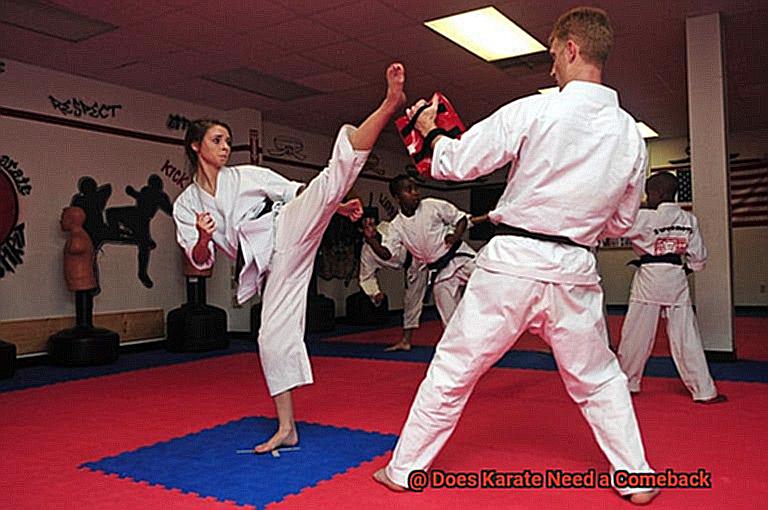
Karate, once a beloved martial art, has seen a drastic decline in popularity in recent years.
If you’re curious about this phenomenon, there are several reasons worth exploring.
Firstly, karate has suffered from a lack of effective marketing. Many people are unaware of what karate entails, which has made it difficult for karate schools to attract new students. Without proper exposure, karate’s appeal has dwindled.
Secondly, the rise of other martial arts such as Brazilian Jiu-Jitsu, Muay Thai, and mixed martial arts (MMA) has also played a role in karate’s waning popularity. These martial arts have gained significant attention in recent years due to their practicality and effectiveness in real-life situations.
Thirdly, karate’s lack of innovation has made it less appealing to younger generations who crave novelty and excitement. While karate has been around for centuries, many feel that it has not evolved much over time.
This stagnation has resulted in fewer people finding it interesting or engaging. Lastly, the perception of karate as a sport rather than a martial art has led to a focus on competition rather than self-defense and personal growth.
This perception has further contributed to the decline in popularity of karate. To regain its former glory, karate needs to adapt by incorporating new training methods that appeal to younger generations while still maintaining its core principles.
Karate schools must focus on practical self-defense techniques and emphasize personal growth over competition. By doing so, they can shift the perception of karate from being just a sport to a valuable martial art that promotes discipline and personal excellence.
However, with the right approach and mindset, karate can rise again and regain its status as one of the most popular martial arts in the world.
Is Karate Still an Effective Self-Defense System?
Karate, the ancient martial art that has stood the test of time, has been a go-to self-defense system for centuries.
However, with newer martial arts like Brazilian Jiu-Jitsu and Mixed Martial Arts (MMA) gaining popularity, some may wonder if karate is still an effective option for self-defense. It’s important to note that the answer isn’t black and white.
Karate has an array of techniques that are useful in self-defense situations, such as punches, kicks, and blocks. The discipline emphasizes quick and powerful movements that can help individuals defend themselves against an attacker.
However, some argue that karate’s focus on striking may not be as effective in real-life situations where grappling and ground fighting are more common. Additionally, some karate schools do not practice self-defense scenarios or sparring with resistance, which can limit a student’s ability to apply their skills in real-life situations.
Despite these criticisms, many karate practitioners still believe that the discipline is an incredibly effective self-defense system. They argue that karate’s emphasis on discipline, focus, and physical fitness can help individuals develop the mental and physical skills necessary to protect themselves in a variety of scenarios.
Karate may not be the most comprehensive self-defense system available. Still, it holds immense value as a discipline that teaches valuable skills and instills confidence in its practitioners.
Unlike other martial arts that prioritize winning at all costs, karate emphasizes personal growth and development, making it an excellent option for those who seek more than just physical fitness.
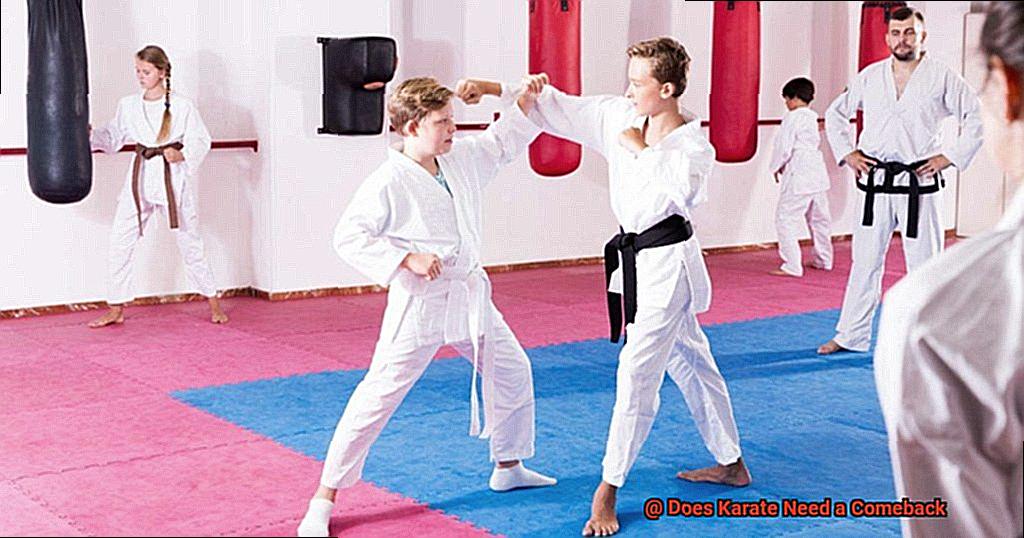
Benefits of Practicing Karate
Karate is more than just a way to defend oneself or a martial art, it is also a way of life that provides countless physical and mental benefits.
It’s no wonder why this ancient practice has gained respect worldwide. Here are some benefits of practicing karate:
- First, karate involves a lot of physical activity, including stretching, cardio, strength training, and endurance exercises. As a result, practicing karate can improve overall fitness levels, increase muscle tone, and enhance flexibility.
- Secondly, karate teaches students how to protect themselves from potential threats. Learning self-defense skills can boost confidence levels and help individuals feel more secure in their daily lives.
- Thirdly, karate training can be an excellent way to relieve stress and improve mental health. The focus required for karate practice helps people clear their minds and release tension from their bodies.
- Fourthly, karate requires discipline and focus which can help students develop better concentration and attention skills. This can translate into other areas of life, such as school or work.
- Lastly, karate training involves a lot of movement coordination which can benefit people of all ages. Improved coordination can enhance balance, mobility, and overall physical performance.
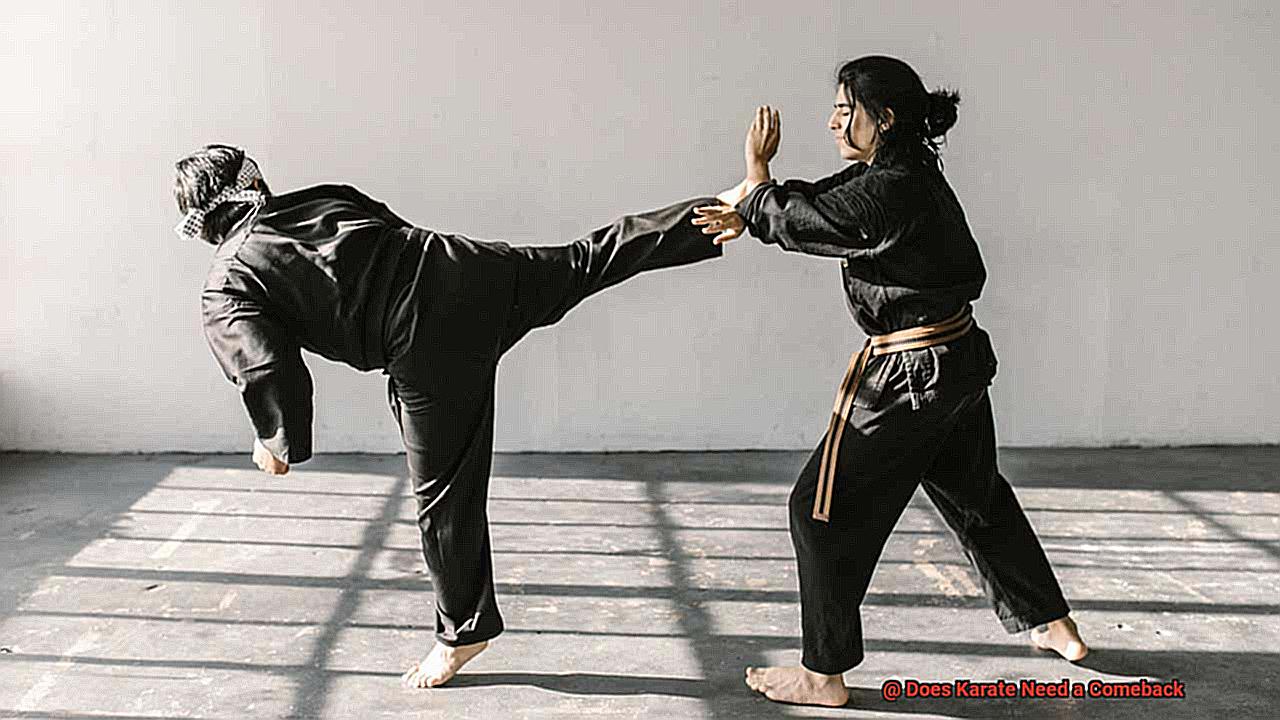
Whether you are looking to improve your fitness levels or learn self-defense skills, karate can be an excellent choice.
Does Karate Need a Comeback?
Karate, once a globally recognized martial art that captured the hearts of many in the 1970s and 80s, has seen a decline in popularity in recent years.
The million-dollar question is whether or not karate needs a comeback.
Let me take you on a journey to explore the reasons for its decline and discuss whether or not there is hope for a resurgence.
One of the primary reasons for karate’s decline in popularity is the rise of other martial arts such as MMA and Brazilian Jiu-Jitsu. These martial arts have gained attention due to their effectiveness in real-life situations, unlike traditional karate which is more focused on forms, katas, and techniques.
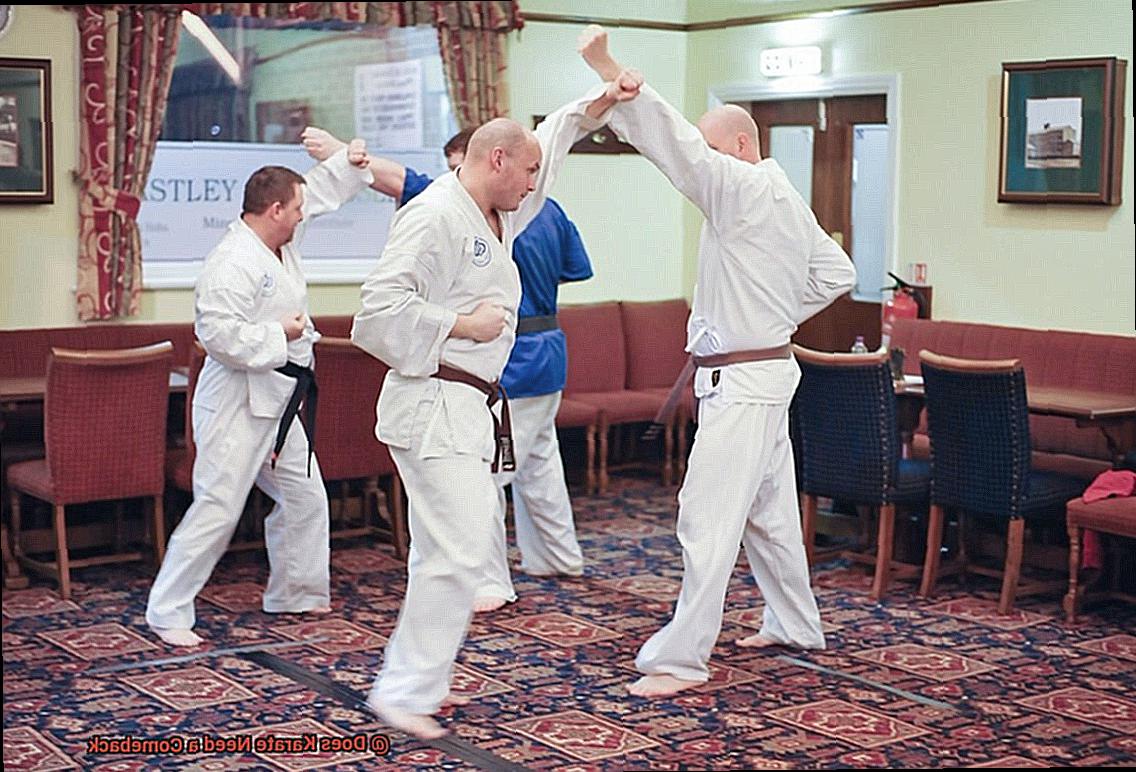
These newer martial arts have enticed many people away from karate, causing them to shift their focus elsewhere. Another reason for the decline in popularity is the lack of standardization in karate.
Different organizations and styles have different rules, techniques, and forms, making it confusing for beginners to decide which style to learn. This has made it difficult for karate to maintain its relevance and appeal in modern times.
Despite these challenges, many people still believe that karate can make a comeback. Karate has a rich history and philosophy that teaches discipline, respect, and self-defense.
It is also an excellent way to improve fitness levels, boost confidence, relieve stress, enhance coordination and concentration skills. To make a comeback, karate needs to adapt to modern times by incorporating more practical techniques and training methods.
It also needs to standardize its rules and techniques so that beginners can easily choose a style to learn. In conclusion, while some argue that karate has lost its relevance and needs to adapt to modern times, others believe that it still has value and can make a comeback with some changes.
Karate is not just a martial art; it is a way of life that can provide numerous physical and mental benefits.
By rebranding karate as a modern, practical martial art, it can attract new generations of enthusiasts.
How to Make Karate Relevant Again
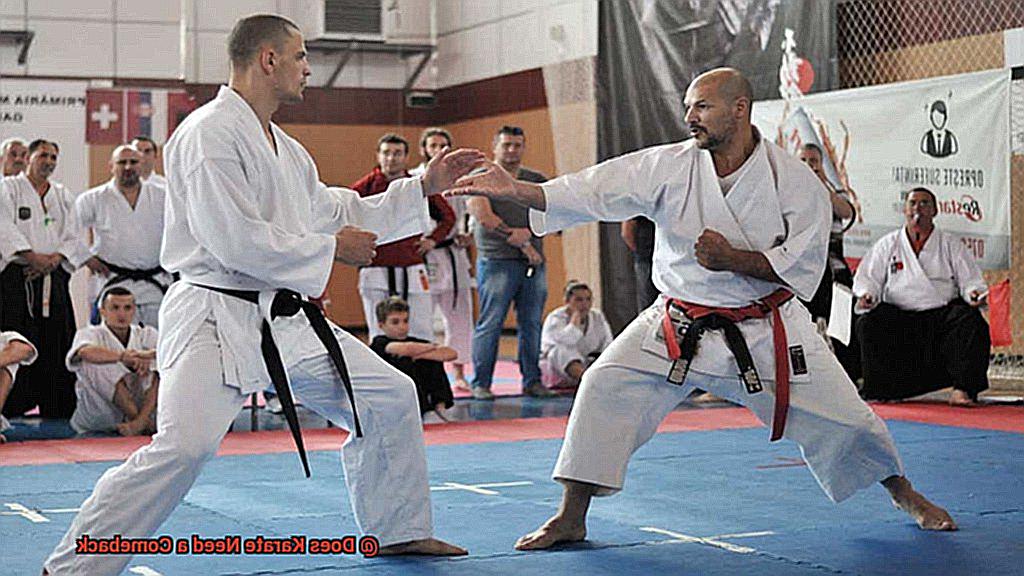
Karate has been one of the most popular martial arts for centuries. However, in recent years, it has lost some of its mainstream appeal. With the rise of other martial arts and combat sports, karate needs to adapt and evolve to stay relevant.
Here, we’ll explore five ways to make karate relevant again.
Adapt to Modern Times
One way to make karate relevant again is by adapting it to modern times. This means incorporating new training methods and techniques that are more applicable to real-world situations.
For example, instead of practicing static techniques, students can simulate self-defense scenarios with multiple attackers while wearing protective gear.
Additionally, incorporating other martial arts into karate training, such as Brazilian Jiu-Jitsu or Muay Thai, can help make it more versatile and effective.
Emphasize Philosophy and Values
Karate is not just about physical training; it also emphasizes mental discipline, respect, and humility. By emphasizing these aspects of the art, karate can appeal to those who are looking for more than just a workout or self-defense training.
Emphasizing the spiritual and mental benefits of karate can also help attract a wider audience beyond just those interested in physical combat.
Promote Karate Through Competitions and Events
Promoting karate through competitions and events can help increase its visibility and popularity. By showcasing the skill and athleticism of karate practitioners, people may become more interested in learning the art themselves.
Additionally, hosting events that focus on the cultural aspects of karate, such as traditional Japanese tea ceremonies or calligraphy demonstrations, can help attract those interested in Japanese culture.
Collaborate with Other Martial Arts Disciplines
Collaborating with other martial arts disciplines can also help bring karate back into the spotlight. Cross-training with other martial arts styles can lead to new techniques and approaches while also attracting new students who may be interested in multiple disciplines. This can help karate practitioners broaden their skills and understanding of the martial arts world.
Leverage Digital Platforms
Creating a strong online presence through social media and other digital platforms can also help to make karate relevant again.
Sharing videos of competitions, training sessions, and demonstrations can showcase the artistry and athleticism of karate to a wider audience. This can help attract new students and increase awareness about the benefits of karate.
So, making karate relevant again requires adapting to modern times, emphasizing philosophy and values, promoting through competitions and events, collaborating with other martial arts disciplines, and leveraging digital platforms.
8qhOJ7BZuxk” >
Conclusion
Karate, the ancient martial art that has captivated people for centuries, has experienced a decline in popularity in recent years.
However, with its inclusion in the upcoming Olympics and renewed interest in traditional martial arts, many are wondering if karate needs a comeback. The answer is not straightforward.
Some argue that karate’s focus on tradition may not appeal to modern audiences. However, others believe that its long-standing history and emphasis on self-discipline make it relevant today.
Karate offers practitioners countless benefits – from physical fitness to mental clarity and stress relief.
To make a comeback, karate schools need to adapt by incorporating new training methods that appeal to younger generations while maintaining core principles.
They must focus on teaching practical self-defense techniques while highlighting the art’s benefits beyond physical fitness. To attract beginners, karate should standardize its rules and techniques, so they can easily choose a style to learn.
By adapting to modern times, emphasizing philosophy and values, collaborating with other martial arts disciplines, leveraging digital platforms, and promoting through competitions and events, karate can once again become a popular and respected martial art.

